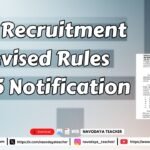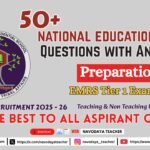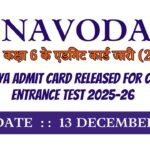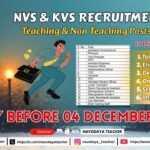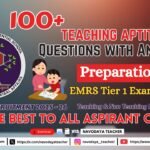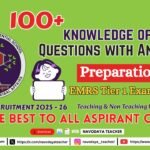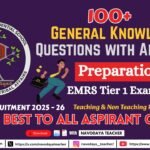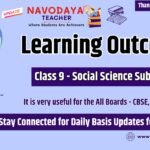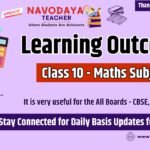In this article we providing information regarding latest Learning Outcomes for Class 10 English Subject in PDF
Learning Outcomes for Class 10 English Subject in PDF 2024
The learner—
- Listens to announcements, instructions, read-aloud texts, audio, videos for information, gist and details; responds by answering questions accordingly.
- listens to and discusses literary / nonliterary inputs in varied contexts to infer, interpret, and appreciate.
- Speaks with coherence and cohesion while participating in interactive tasks.
- Uses language appropriate to purposes and perspectives.
- Talks on key contemporary issues like social justice, environment, gender, etc., in speech and writing.
- Participates in bilingual or multilingual discourses on various themes.
- Reads, comprehends, and responds to complex texts independently. Reads stories and literary texts, both fiction and non-fiction, with understanding for pleasure and enjoyment and discusses about these.
- Appreciates nuances and shades of literary meanings, talks about literary devices like onomatopoeic sounds, symbols, metaphors, alliterations, comparisons, allusions and the poet’s or the writer’s point of view.
- Collects evidences and discusses in groups for reading autobiographies, history and science based literary texts.
- Writes paragraphs, narratives, etc., by planning revising, editing, rewriting, and finalising.
- Writes reports of functions in school, family, and community activities.
- Writes personal, official and business letters, articles, debates, paragraphs based on visual or verbal clues, textual inputs, etc.
- Evaluates content presented in print and in different genres/formats takes notes and makes notes while listening to tv news, discussions, speech, reading aloud/silent reading of texts, etc., and summarises.
- Reads with understanding information in his environment outside the schools as in hoardings, advertisements, product labels, visiting market place, etc.
- Organises and structures thoughts, presents information and opinions in a variety of oral and written forms for different audiences and purposes.
- Interprets map, graph, table to speak or write a paragraph based on interpretation. Edits passages with appropriate punctuation marks, grammar and correct spelling.
- Uses grammar items in context, such as, reporting verbs, passive and tense, time and tense, subject-verb agreement, etc.
- Uses words, phrases, idioms and word chunks for meaning-making in contexts.
- Understands and elicits meanings of the words in different contexts, and by using dictionary, thesaurus, and digital facilities.
- Reads literary texts for enjoyment/pleasure and compares, interprets and appreciates characters, themes, plots, and incidents and gives opinion.
- Explains specific features of different literary genres for interpretation and literary appreciation.
- Identifies and appreciates significant literary elements, such as, metaphor, imagery, symbol, simile, personification, onomatopoeia, intention or point of view, rhyme scheme, themes, titles, etc.
- Writes short stories and composes poems on the given theme or on their own.
- Exhibits in action and practice the values of honesty, cooperation, patriotism, and while speaking and writing on variety of topics.
- Uses bilingual or multilingual abilities to comprehend a text and participates in activities like translations and bilingual and multilingual discourses on various themes.
- Uses sign language to communicate with fellow learners with hearing impairment in an inclusive set up. Reads poems, stories, texts given in braille; graphs and maps given in tactile/raised material; interprets, discusses, and writes with the help of a scribe.
- Appreciates similarities and differences across languages in a multilingual classroom and society.
- Recognises and appreciates cultural experiences and diversity in the text and makes oral and written presentations.
Thanks to Beloved Readers.



